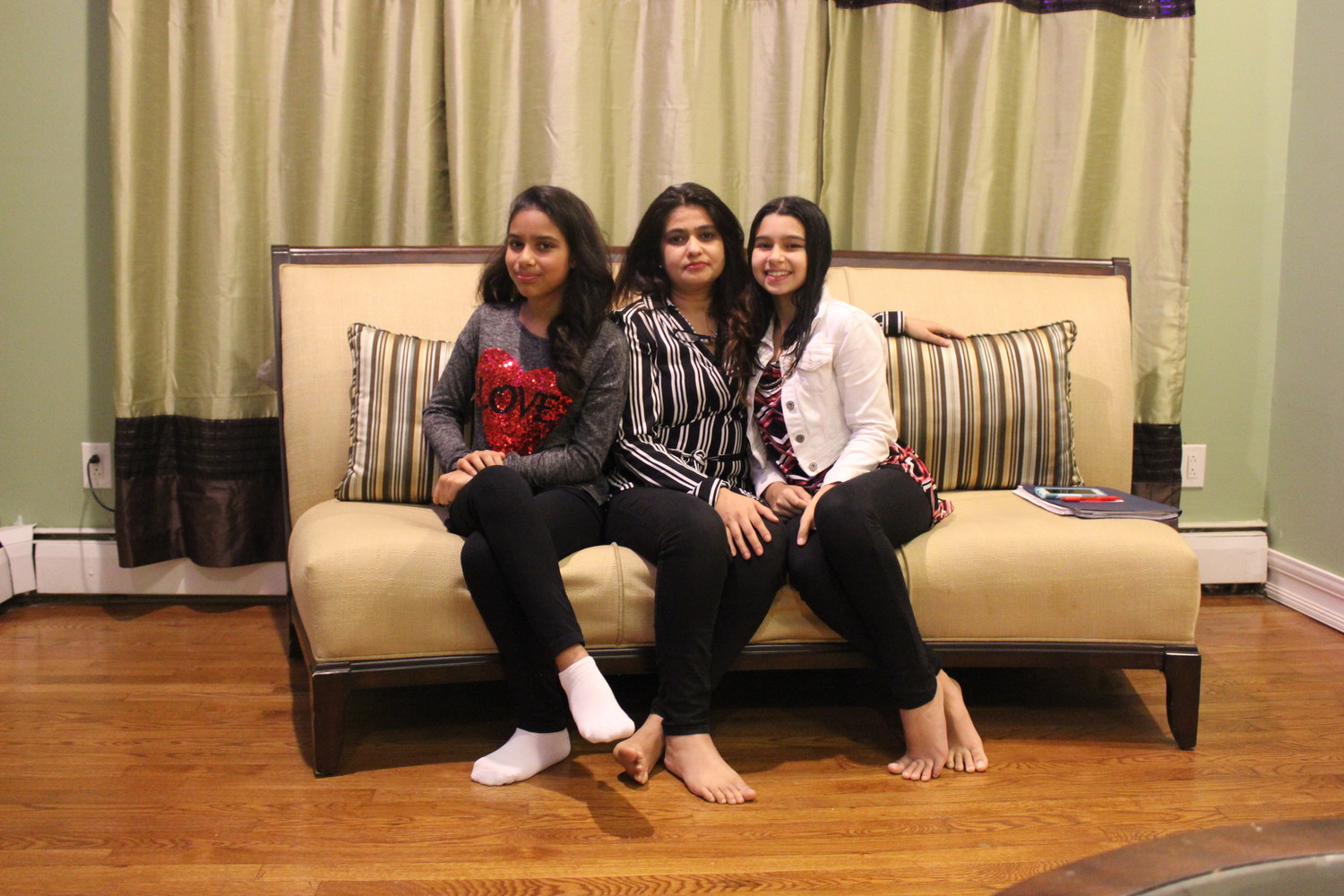Muslim families seek representation in Central High School District
Muslim holidays could be added to school calendar
In the Muslim faith, families celebrate the Eid holidays from sunset to sunset by enjoying feasts, exchanging gifts and going on scavenger hunts in their communities. When a holiday falls on a school day, however, Summer Marfani, an eighth-grader at Grand Avenue Middle School, said she feels pressured to opt out of the festivities.
“I try to do both, but it’s really a lot of pressure on me to choose between my faith and my schoolwork,” she said.
Each year, her mother, Sabana Oza-Marfani, said, Summer and her sister, Alisha, a seventh-grader at Grand Avenue, argue with their parents on the morning of the holidays, saying they do not want to miss their class work or extracurricular activities and risk falling behind.
“They’re in all honors classes,” Oza-Marfani added.
“And chess club,” Summer said.
“And lacrosse,” Alisha chimed in.
“And soccer,” said Summer, before her mother laughed softly and concluded, “They’re overloaded.”
The Eid holidays include Eid al-Fitr and Eid al-Adha. The first celebrates the end of the 30-day Ramadan fast, and the second celebrates Abraham’s sacrifice of the ram in place of his son Isaac.
Eid al-Fitr will fall on June 15 in 2018. Eid al-Adha, which fell on Sept. 12 in 2016 and Sept. 2 in 2017, will be celebrated on Aug. 22, 2018. Eid al-Fitr conflicts with school, Oza-Marfani said, because it falls in late spring, when students are taking final exams and preparing for graduation. And Eid al-Adha often falls during the first week of classes, when students are getting used to their schedules.
Oza-Marfani raised her concerns at a Central High School District Board of Education meeting last year, and again at another one on Oct. 4. She stood up in a red dress with a matching headscarf at the meeting’s close, and asked whether the board had considered recognizing the Eid holidays by not holding classes or scheduling district events on either day.
Her question was met with whispers from parents and students in the audience who might not know what the Eid holidays mean in the Muslim faith.
“I have never felt unrepresented in my community,” Oza-Marfani said. “I am proud to raise my kids here, and look forward to our district moving forward in being inclusive and showing its students that they are represented on the calendar as well.”
If district officials decide to recognize the Eid holidays, Superintendent John DeTommaso said, the four elementary school districts in the Bellmore-Merrick area must follow suit to retain continuity among all five districts’ calendars. The respective superintendents are now introducing the proposal to their boards of education.
The district currently adheres to a policy that ensures students are not penalized for missing class for religious reasons, DeTommaso explained. Those absences are treated like sick days, but, Alisha said, the last time she was out for a sick day, she was inundated with assignments to complete when she returned.
“I can’t miss all that work,” she said. “It’s like a double day the next, and I don’t get sleep.”
Public schools in New York City have recognized the Eid holidays for more than a year. School administrators have mapped out a plan to coordinate school calendars for the next 30 years, because the dates of the holidays change every year based on the lunar calendar.
A number of schools in Nassau County have also added the Eid holidays and the Hindu holiday Diwali on their calendars. “This has given a sense of diversity for children to learn about each other’s faiths,” said Musti Sarhan, a representative of Muslim Communities of Nassau County and a congregant of the Jaame Masjid mosque in Bellmore. “That’s what makes Nassau County so beautiful,” he added.
When the Bellmore-Merrick district celebrates other holidays, both secular and religious, Summer Marfani said, she enjoys learning about their origins and meaning. “I want people to be aware that I have a special holiday, too,” she said.









